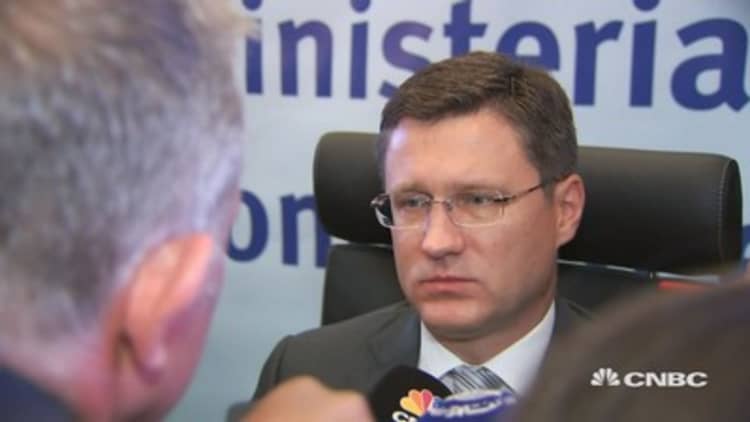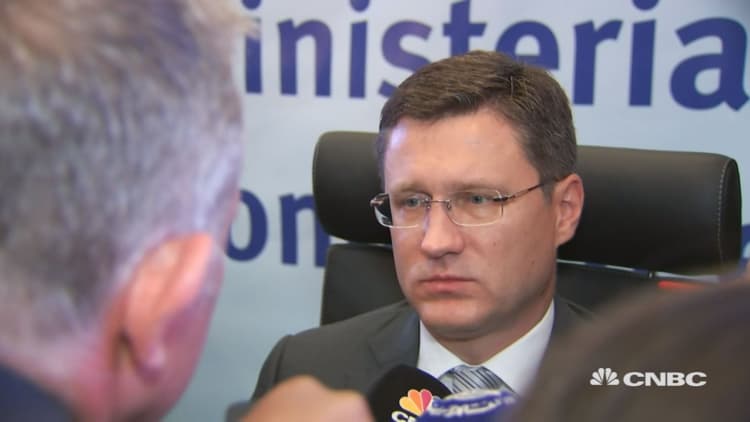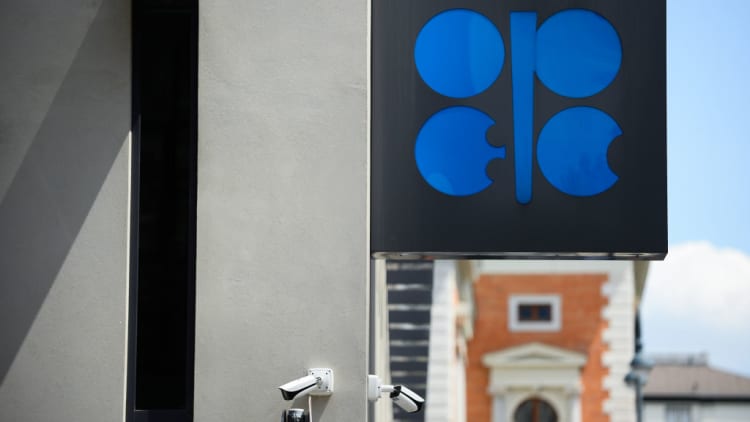
Russia stands ready to hike its oil output after the implementation of U.S. sanctions on Iran, the country's energy minister told CNBC on Sunday.
President Donald Trump's administration is set to impose fresh sanctions on Iran targeting the country's crude industry on November 4. The U.S. is reimposing sanctions on the Middle Eastern nation as part of its withdrawal from the 2015 Iran nuclear deal.
"I don't think we can discuss the exact number at this point but what I can tell you for sure is that we have significant potential to increase our production," Russian Energy Minister Alexander Novak told CNBC's at the Joint Ministerial Monitoring Committee (JMMC) in Algiers on Sunday.
"So we can restore production to October 2016 levels and we cannot go above that but we would be looking at the overall supply-demand balance before we take any decisions."
Earlier in the month, Novak criticized U.S. sanctions on Iran as "unproductive" and "wrong," and said there "will be consequences."
Companies that rely on access to Iran's oil market have been steadily cutting off their buying of Iranian crude as the State Department has warned firms to cease purchases by early November.
Europe has been calling for concessions to exempt certain industries from the wide-ranging levies. But U.S. Secretary of State Mike Pompeo and Treasury Secretary Steven Mnuchin have rejected these pleas, saying the sanctions are aimed at maximizing economic pressure on Iran.
The Organization of Petroleum Exporting Countries, commonly abbreviated to OPEC, has come under increasing pressure amid comments by Trump and impending sanctions on Iran. A steep decline in production from Venezuela, whose economy has been crippled by hyperinflation, has also added to pressure on the cartel to boost production.

Trump has accused the producer group several times of inflating crude prices, most recently calling it a "monopoly" and urging it to "get prices down now." OPEC disputes that claim, saying its primary aim is to balance and stabilize the market.
OPEC, along with Russia-led producers, has capped output since the beginning of 2017 in order to deal with a supply glut and end a prolonged oil price downturn that bankrupted several U.S. energy firms, escalated financial pressure on crude exporters and led to unrest in some of those countries.
Responding to Trump's claim that OPEC is boosting oil prices, Novak said: "The key objective of our group is to curb any crisis events or any crisis trends which could be forming in the energy sector."
In its last meeting, the joint group of producers, known as the JMMC, struck a deal to hike supply, without specifying how much it would look to increase production by.
On Sunday, OPEC said the oil industry would need to invest $11 trillion over the next 20 years in order to satisfy international crude demand.
"We are all jointly as a group exerting effort to be able to achieve a balanced market, which means acting both when there is deficit and when there is surplus in order to counter those trends," Novak said.
WATCH: What is OPEC?



